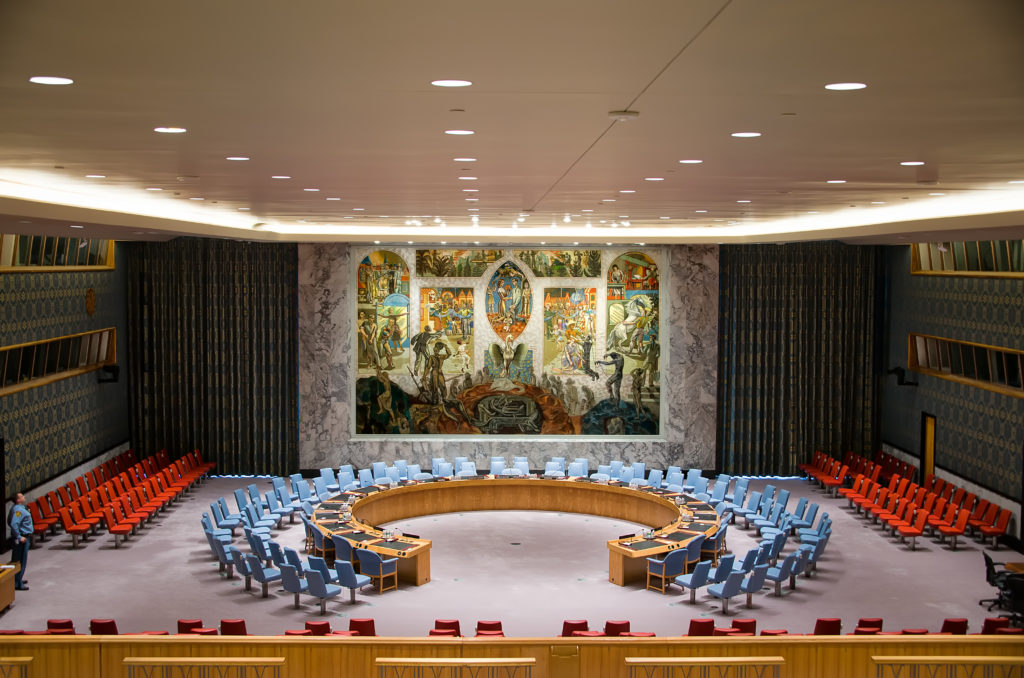The Peninsula
Responding to North Korea’s Sixth Nuclear Test

By Mark Tokola
Now that North Korea has defied warnings from the international community not to conduct a sixth nuclear test, including from its friends China and Russia, the challenge is, how to respond? North Korea knows it has made a hugely provocative step. The September 3rd test was by orders of magnitude larger than any of its previous tests, indicating a thermonuclear capability. It comes after a relatively long pause, the last test was in September 2016. It collapsed a tunnel, showing either by design or by mistake, that it was even more ‘successful’ than intended. And the test came hours after North Korea broadcast a picture showing Kim Jong-un admiring, up-close, a nuclear warhead (or model thereof) designed to fit into a missile nose-cone. North Korea must be expecting an international response, or if need be a unilateral response from the U.S., in consultation with South Korea. What should that response be?
Russia has called for “immediate talks” and talks would be desirable if North Korea was prepared to offer anything, which it has not signaled. The September 3rd test would seem to indicate that North Korea is still on its path of acquiring a credible, reliable nuclear weapons capability capable of striking the U.S. and its allies, and perhaps to gain a second-strike capability, before it will be willing to talk – if Kim Jong-un is willing to talk at all. The international community has assumed that North Korea would eventually want to talk to see sanctions lifted. There is a possibility that Kim Jong-un is relying on the sanctions to internally justify his weapons program. In that case, Kim Jong-un would only want to talk for the purpose of being welcomed to the international nuclear club.
Following the September 3rd test, the main question is whether there can be a response stronger than the one North Korea undoubtedly expects. The last, impressively tough, round of sanctions was not enough to deter North Korea from conducting its sixth test. What kind of response would get their attention? Among the options are a diplomatic response, an economic response, and a show of deterrence.
A diplomatic response could be to expel North Korea from the United Nations. This is possible under the U.N. charter and would be a serious blow to North Korea because it cares about international prestige. This response would show Pyongyang that it lacked any international support, including from Russia and China who could veto the expulsion if they chose. The grounds are clear enough. North Korea has repeatedly defied U.N. Council resolutions through its weapons program. The U.N.’s patience should have limits. China and Russia would be reluctant to expel North Korea from the U.N., but their patience should have limits, too, and they may prepared to go along with a diplomatic step rather than the alternatives.
An economic response may be to move beyond sanctions and to impose an economic embargo on North Korea, as has been advocated by former South Korean national security official Chun Young-woo. If no degree of stepped-up sanctions have applied sufficient economic pressure, an embargo would be the last step in the escalatory chain of economic measures. Would this cause the North Korean people to suffer as well as the North Korean regime? It would, at least in the short run, but not as much as it would have in the past because of North Korea’s market liberalization of recent years. Domestically produced food and other necessities would still make their way to the markets. An embargo might even accelerate the pace of de facto privatization of the North Korea economy. An exception could be made for medicines and other strictly humanitarian requirements. It may be worth giving economic measures one last chance to work.
A strong deterrent measure might be to overfly North Korea with short or intermediate range U.S. or South Korean missiles. North Korea has not hesitated to launch missiles over Japanese territories, so it cannot argue that there is a taboo against such a step. The North Korean air defense system probably is robust enough that overflying North Korea with military aircraft would be too risky. They probably would not have the ability to intercept a missile over-flight, and even if they did, the interception of a missile within North Korean air space would still show that its weapons program was not making North Korea any safer.
The goal is still to bring North Korea to a negotiating table. A strong response to the September 3rd test may be more likely to make that happen than no response at all.
Mark Tokola is the Vice President of the Korea Economic Institute of America. The views expressed here are his own.
Photo from Russ Allison Loar’s photostream on flickr Creative Commons.
